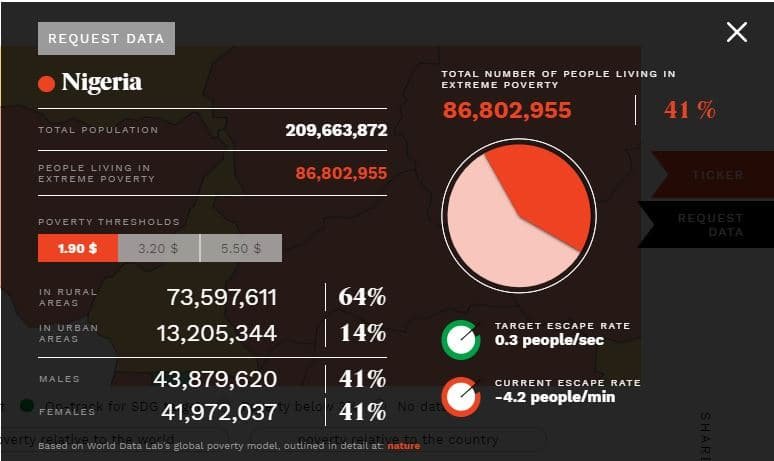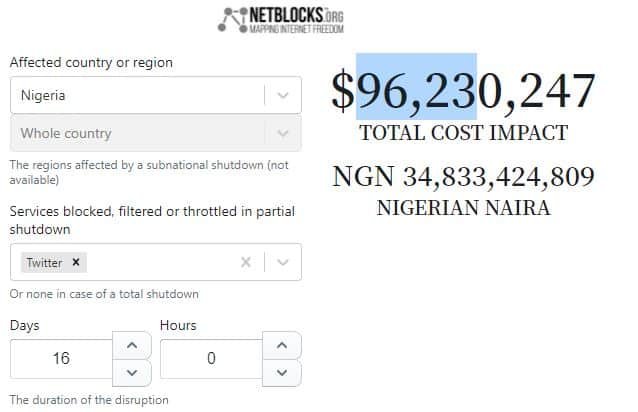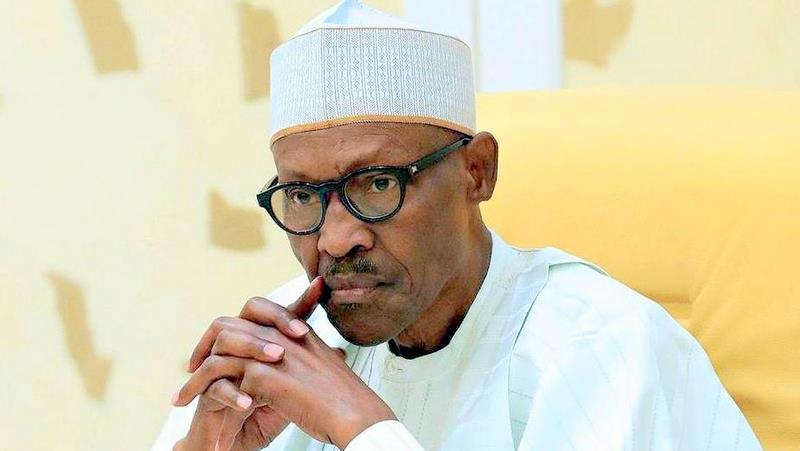Nigerians for President Muhammadu Buhari to has finally granted an exclusive interview with Arise News.
The interview which aired on Thursday, June 10, was the first the president granted since his re-election in 2019.
This analysis reviews the significance of the interview and President Buhari’s responses to some key questions asked by the interviewers.
A recent report by The Cable indicates President Buhari has so far spent 183 days getting medical help in the United Kingdom (UK).
The president’s health status has fuelled speculations that he’s really not in charge of his administration. Many even claimed he is not aware of important happenings in the country.
However, President Buhari’s firm responses during the interview, albeit with a few instances of incoherence, show that he’s in charge of Nigeria and is very much aware of what’s going in his administration and the country at large.
Sodiq Alabi, a social commentator, has this to say about the president’s interview:
“This is the most coherent I’ve seen the General (President Buhari). Ignore the bits of the interview you see on social media and watch the full thing yourself. The General is in charge and should be blamed or praised for everything the FG does. Don’t buy the controlling cabal narrative.”
Bandits will be treated in the language they understand
Asked a question on how he’s addressing the nation’s security challenges, President Buhari noted that he’s made improvements in the northeast and the south-south but admitted that he’s almost overwhelmed by the crisis in the northwest.
However, he promised that positive changes would soon be seen, noting that he had instructed the military and the police to be ruthless with the bandits.
He said:
“Problem in the northwest; you have people over there stealing each other’s cattle and burning each other’s villages. Like I said, we are going to treat them in the language they understand.”
About a week ago, the statement “treat them in the language they understand” became controversial after the president used it in a tweet referencing the Biafra war.
He had warned the insurrectionists in the southeast against destroying the country. However, many accused him of being insensitive, adding that he never used such strong words against those behind the security crisis in the north.
Eventually, the tweet was removed by Twitter. The federal government insisted the “tweet was not a threat, but a statement of fact”, adding that Twitter’s action was “based on a misunderstanding of the challenges Nigeria faces today.”
Though he didn’t address the issue directly, by using the same controversial statement for the bandits in the north, the president has in a way shown he was not biased against the southeast and he was only addressing the criminals causing chaos in the country.
Allegations surrounding his appointments
Since assuming power, President Buhari has been repeatedly accused of making skewed appointments in favour of the north. The latest was his appointment of Major General Farouk Yahaya as the Chief of Army Staff.
Though many may not still be convinced, the president at least talked about what he considers in making appointments and particularly revealed why General Yahaya was appointed.
THE BAD: The message to the governors
Fielding questions on the security challenges, President Buhari said two governors from the southwest recently visited him to inform him about the menace of the killer herdsmen in their states.
His response:
“You know these people more than I do, and you are democratically elected to protect your people. Don’t sit idly expecting me to do everything, take action.”
Governors, especially from the southwest, are already taking actions. However, there is a limit to what they can do as security remains an item in the exclusive list.
Ibidolapo Olufade, a legal expert, argued in a piece that even though state governors can find a way to create security agencies through the states Houses of Assemblies, the bulk of the security responsibility still lies with the federal government.
Citing relevant constitutional provisions, Olufade also noted that security agencies created by states also need a licence from the federal government before members of the security team can procure and bear arms.
Behave yourselves – the message to the Nigerian youths
One of the primary duties of the president is to ensure security. However, the president transferred this duty to the Nigerian youths when asked what he was doing to scale up the direct investments into the country.
President Buhari made reference to the #EndSARS protest in October 2020 which turned violent and led to the destruction of public and private properties in Lagos and other states.
He said the youths must ensure there is security if they want jobs, noting that no one will invest in a country boggled by insecurity.
What the president failed to acknowledge was that his failure to address the Nigerian youths’ agitations against the men of the defunct SARS led to the protest. It was also his very slow response to the demands of the protesters that prolonged the demonstrations up to the point where it was hijacked by hoodlums.
Reacting to the statement, Yusuff Adewale Ayoola, a young Nigerian engineer and social critic, said President Buhari was just engaging in his usual blame games.
Ayoola
“PMB has never admitted that he fails Nigerian, not only the youth. He always gives excuses and shifts blame ever since the inception of his administration. Both his speech and silence are always threatening the unity of our country. In my own view, he’s just playing his game as usual “shift blames”.”
Also reacting, Mutiat Ibrahim, a young Nigerian critic and social advocate based in the United Kingdom, berated the president for making such a statement.
She noted that the president was elected to serve some purposes which include the provision of jobs.
According to Ms Ibrahim
“Telling the youths to behave themselves if they want jobs shows he’s not feeling the pains of thousands of us out there and doesn’t care about the development of the nation.”
THE UGLY: Grazing routes/open grazing
President Buhari told governors to go and address the security crisis in their states. Now, one of the steps the governors have taken, especially the southern governors, was to ban open grazing of cattle which is one of the main causes of the herdsmen crisis.
Asked what he is doing to address the crisis, one would think the president would mention plans to encourage the herdsmen to consider ranching in line with the previously unveiled but yet to be executed National Livestock Transformation Programme.
However, the president shockingly said his plan was to bring back the open grazing routes in the country as was practised in the First Republic.
He said:
“What I did was ask him (AGF) to go and dig the gazette of the first republic when people were obeying laws.
“There were cattle routes and grazing areas. Cattle routes were for when they (herders) are moving up country, north to south or east to west, they had to go through there.”
However, in a statement released on Sunday, June 13, a popular human rights lawyer, Femi Falana (SAN), said President Buhari was making reference to the Grazing Reserves Act of 1964 which is only applicable to northern Nigeria in the 1960s.
Similarly, Ajibola Basiru, the spokesman of the Senate and a member of President Buhari’s party, APC, said there is no grazing-route law in Nigeria.
Re-echoing what Falana said, the lawmaker said the gazette President Buhari was referring to was a product of a decree promulgated in northern Nigeria in the 1960s, adding that the Land Use Act recognised by the constitution has rendered it ineffective.
Twitter suspension
“That I will keep to myself,” was President Buhari’s response to the question regarding when Twitter’s suspension will be lifted in Nigeria.
While Twitter indeed needs to be more neutral in terms of its operational guidelines, suspending the platform is not the right way to go, especially for a country that holds the notorious record of being the world’s poverty capital.

Nigeria has lost N34.83 billion ($96.23 million) in 16 days since the Twitter ban took effect on Saturday, June 5, according to NetBlocks Cost of Shutdown Tool which estimates the economic impact of internet disruption, mobile data blackout or app restriction using indicators from the World Bank, ITU, Eurostat and US Census.

Twitter over the years has become a source of income for Nigerian youths who help companies promote their businesses. The social media platform is also an effective tool that Nigerian startups use to offer customer support to their users.
For a country where rising prices pushed seven million citizens into poverty in 2020, according to World Bank, suspending/banning Twitter is not the right way to go and it’s sad that the president did not consider the suspension important enough to be addressed during the interview.
Conclusion
While the interview features both the good and the ugly responses, overall, finally speaking to Nigerians was the right move for the president.
The interview afforded the citizens the opportunity to understand the president’s stance on several issues affecting the nation and give their individual takes about his positions.
As Reuben Abati, one of the frontline journalists that spoke with the president, put it, “whoever advised President Buhari to grant” the interview “did him a big favour.”
Source: Legit






















